- Home
- Scott Mariani
Valley of Death Page 15
Valley of Death Read online
Page 15
Even for someone who’d been to the places Ben had been and seen the things he’d seen, the depth and scale of the poverty were breathtaking. The inevitable consequence of cramming more than 37,000 people into every square kilometre of a sprawling slum hellhole with no facilities, no clean water and, for those fit and able enough to scrape it together, an average monthly income that equated to about eighty euros.
Haani’s apartment building was far enough from the worst of the slum to be habitable, but that was about it. It was one of several haphazardly-constructed multi-storey blocks crammed like factory farms, with jutting balconies everywhere covered in washing and garbage and a crisscrossed confusion of electrical wires overhanging the fume-choked tumult of the street below. One of the buildings had listed at an angle and was leaning up against its neighbour like a drunk. People were still living in it.
Ben left the car, with no idea whether it would still be there when he returned. After checking the address one last time he entered the apartment building. It was still upright, for the moment at least.
Haani lived on the top floor. Ben wouldn’t have used the lift, even if there had been one. Forget air conditioning. The heat seemed to get worse as he made his way up the creaking stairwell. He could smell cooking and damp and decay. He could hear babies crying, angry people arguing, televisions blaring, the loud music of radios and boom boxes blending together into a welter of meaningless sound. There was a dead dog on the first-floor landing. On the third floor a wizened old woman in a headscarf peeped out of her door as Ben passed by, and quickly shut it again.
It was a little quieter on the top floor. Five identical doors were spaced out in a row along a narrow landing, each one crudely marked with a hand-painted number in white paint. Ben checked his notebook for the apartment number. Haani’s door was the one at the far end. He paused for a moment to think about what he was going to say, then knocked twice.
His knuckles made a hollow sound on the door. It was a rudimentary item, not well made. Two sheets of cheap, low-grade plywood nailed together either side of a framework of cheap, low-grade lumber, and filled mostly with air, along with probably some sawdust. It was as flimsy and fragile as it was a poor sound insulator. When there was no response to his knock, Ben pressed one ear to the door and covered the other ear with his hand to block out the ambient noise of the apartment building. He could have detected a mouse scampering about inside the room, but he could hear nothing.
He rapped on the door again, loud enough to be authoritative without being menacing, still pressing his ear to the door. Still heard nothing. Nobody home. He thought, damn it, stepped away from the door and pondered what to do next. Maybe it had been a mistake not to call before turning up here. He took out his phone and dialled the mobile number he’d copied from Haani’s student enrolment form. He put the phone to his ear and heard it ringing.
Inside the apartment. Just the other side of the flimsy door. The amplified resonant buzz that a mobile phone set on vibrate mode makes when lying on a tabletop. So either Haani had gone out and left his phone at home, or he was there behind the door and not answering.
Ben took a step back towards the door and heard another sound from inside. Not the scampering of a mouse, but something not dissimilar. It was the sound of someone stepping quickly, lightly, furtively across the room to turn off their phone in case the person outside the door could hear it ringing. As if there could have been any doubt.
The ringing stopped. Ben turned off his own phone, slipped it back into his pocket, moved closer to the door and called out, ‘Haani Bhandarkar? Is that you in there?’
No reply.
‘My name’s Hope, Ben Hope. I’m a friend of Kabir.’ Which latter statement wasn’t strictly true, except in the broadest sense, intended to reassure. But it didn’t seem to make Haani want to open the door. Ben could sense his presence in there, visualise him standing stock still just a few steps away, frozen by uncertainty as to whether to open up or not. His anxiety was so palpably crackling with nervous energy that it felt to Ben like an electrical static field penetrating the flimsy wood of the door. What was he so afraid of?
‘I’m working for Kabir’s family,’ Ben said through the door, making his voice sound relaxed and amiable. ‘I’ve come here from the Institute, where I was speaking to Professor Gupta. He told me about the Indus Valley script research, and the computer hacking, and how you helped Kabir with the antivirus protection and firewalls. That’s what I’d like to talk to you about. It’d be a lot easier if you let me in.’
Still no response from the other side. Ben was losing patience. It wouldn’t take much force to open the door. It could be secured with deadlocks and bolts and all the hardware in the world, but a lock could only be as strong as the wood it was screwed to.
Ben said a little more firmly, ‘Haani, it’s really important that I speak with you. This isn’t just about Kabir, it’s about his brother Amal too. Ignoring me isn’t going to make me go away. Please, open up.’
There was no answer from inside the apartment.
‘Haani, I can hear you breathing in there,’ Ben said. ‘Last chance. I’ll count to three and then I’m coming in, okay?’
Haani didn’t reply.
Ben counted ‘One.’
No response.
Ben counted ‘Two.’
Silence from inside.
Ben counted ‘Three.’ And took a step back from the door, and kicked it in with the sole of his boot planted just below the handle, putting all his weight behind the impact. The door gave way with a splintering crack and flew open, banging hard against the inside wall. Ben stepped quickly into the room. The tiny apartment was dark, with the blind drawn over the single window, and smelled of curry and human sweat. Furnishings were minimal, though clearly not for stylistic reasons. There was a kitchen area crammed into one corner, sink piled with dirty dishes, a small table with a single wooden stool pulled up to it. Just one inner door leading off the main room.
But no Haani.
For a second, Ben thought the guy must have clambered out of the window, maybe hopped over to the neighbouring balcony and managed to make his escape. He stepped over to it and yanked the cord to roll up the blind, and saw that was impossible. No balcony. The window was barred on the outside. Great idea, if the building should ever happen to go up in flames, which seemed a distinct possibility judging by the state of the electrical wires hanging like ghost ship rigging over the street.
But that didn’t answer the question of where Haani was, except that he must still be inside the apartment. There were two interior doors. One was closed, the other open enough for Ben to see that it led into a rudimentary bathroom not much larger than a cupboard, with a stained toilet bowl, cracked mirror and grimy shower cubicle, and that it was empty. He turned towards the one that was closed.
Before he could open it, the door burst open to reveal a tiny, rumpled bedroom. And suddenly there was Haani Bhandarkar. He looked like his passport-sized photo. A good-looking kid. Probably popular with the girls. Longish, unkempt raven-black hair. That was where the similarity ended, because in the photo Haani hadn’t been plastered with sweat and looking as though he was about to faint with pure terror.
And in the photo, he hadn’t been holding a nine-millimetre Browning handgun almost identical to the one the police detectives had confiscated earlier that day. This one was pointed at Ben’s face.
Chapter 28
Ben had long ago lost count of the number of times he’d had a gun pointed at him. All kinds of people had threatened him that way. Some of them had been experienced combatants, some bumbling amateurs. Some had been supremely confident in their abilities, others had been scared shitless. Ben had so far survived such encounters, but he was well aware that the day might come when he wouldn’t. And in his experience a very frightened assailant was just as dangerous and likely to shoot you as someone calm and unemotional. Perhaps even more dangerous, because they weren’t in control of their reflexes
. Haani’s right index finger was inside the trigger guard and Ben could see the nail and the flesh around it turning white as it stacked up pressure on the trigger.
But Haani was no professional, and where amateurs invariably fell down in these circumstances was from having only seen actors pointing guns in movies. As he came bursting out of the bedroom with the pistol aimed in Ben’s face he was making the classic mistake of holding it out at full stretch, too close to his opponent.
Which for Ben made it a simple, more or less risk-free matter of twisting the weapon right out of Haani’s grip. If he’d wanted to be nasty he could have trapped Haani’s right index finger inside the loop of the trigger guard and used the leverage to snap it like a twig. But Ben wasn’t interested in hurting the guy, only in saving his own skin.
So less than a second later, the gun was in Ben’s right hand, retracted close to his torso where it couldn’t be snatched and now pointing in the opposite direction, with nobody having been shot and lying bleeding on the floor. A happy outcome for both of them. With his left hand Ben motioned towards a worn armchair by the window. He said, ‘Let’s start over, okay? Sit down, calm yourself and talk to me.’
Haani was panting as though he’d done a hundred-metre sprint. His face was ashen with fear and the raven-black hair was stuck to his damp forehead. His eyes gleamed as they flicked up and down, at Ben, then at the gun, then back up at Ben. ‘You’re going to kill me. You’re one of them.’
‘Haani, if I had any intention of killing you, you’d have been dead before you got up this morning. Now sit.’
Haani gulped hard and very slowly backed away three steps until the backs of his legs touched against the chair, still not taking his eyes off Ben or the gun. He lowered himself into the chair, sitting rigidly upright, blinking and sweating. ‘Okay, if you’re not going to kill me, then what do you want?’
Ben stepped over to the kitchen area, grabbed the wooden stool and carried it over so he could sit opposite the window. There was really no need to keep the gun pointed at Haani as though he was any kind of a threat. Ben thumbed on the safety catch and cradled the weapon in his lap with his finger outside the trigger guard. Now that the situation had calmed, he was able to give the pistol another glance or two. It really did bear a striking resemblance to the one that had belonged to Kabir, which Brooke had borrowed from his bedside drawer and given to Ben, and which was currently in the possession of the New Delhi police. The piece he was holding now was similarly old and scuffed, but well maintained and smelling of fresh oil. Ben popped the magazine out from the hollow of the pistol grip. Fully loaded, thirteen rounds, nine-millimetre full metal jackets, the cartridges manufactured by the Indian government’s Ordnance Factory Board. Not available to civilians.
The exact same model of pistol as Kabir’s, in the exact same condition as Kabir’s, loaded with the exact same military ammo as Kabir’s.
An interesting coincidence.
Ben replied to Haani, ‘I already told you what I want. Information. Nothing more, nothing less. Apparently, you didn’t believe me.’
‘About Kabir’s computers?’
‘More precisely, about who might have tried to hack into them.’
Haani said, ‘And you really spoke to Professor Gupta?’
‘Unless the man with whom I had a pleasant and informative conversation earlier today was an impostor.’
Haani pursed his lips and said after a beat, ‘So you’re not one of the bad guys?’
‘Is that who you were expecting to show up at your door?’
‘They murdered my friends.’
‘And now you thought they were coming after you.’
Haani nodded.
‘Hence the gun.’
‘A guy has to protect himself,’ Haani said.
‘Is that why you gave one to Kabir? For self-protection?’
Haani blanched a little, like a child caught out in a lie. ‘How did you know it was mine?’
‘Not one, but two Browning nine-mils. That’s a lot of hardware for an archaeology student.’
‘They were a matched pair. My father’s. He was a sergeant in the army.’
‘Does your father know you’re running around with loaded guns?’
‘He’s dead. Died two years ago of a heart attack.’
‘That’s a shame,’ Ben said. ‘Just like it’s a shame that Kabir didn’t take the threat seriously enough to carry it with him that day. Or things might have gone differently for the three of them.’
‘Tell me about it.’
‘So are you ready to trust me now?’ Ben asked.
But Haani still wasn’t sure. ‘You could be tricking me. How do I know you didn’t hurt Professor Gupta, beat the information out of him or something, and now you’re going to hurt me too?’
Ben said, ‘You want to call him and ask how he is? He’s worried about you. Says he hasn’t seen you around lately.’
‘What else did he tell you?’
‘That you couldn’t go on the helicopter trip because you sprained your ankle in a kabaddi match. I’d have thought a young guy who plays rough sports like that could have handled himself a little better just now. If I really had been a bad guy, you wouldn’t have stood a chance.’
Seeing that Haani still wasn’t fully convinced, Ben popped the gun’s magazine, quickly shelled out its contents, then jacked out the extra one in the chamber and slipped all fourteen rounds of loose ammunition into his pocket for safekeeping. Then he replaced the magazine and tossed the unloaded weapon over to Haani. ‘There you go. Now I’m not armed any more. You can have the ammo back when we’re finished talking.’
‘This could be another trick,’ Haani said. ‘A bad guy would be carrying a gun of his own. Or a knife.’
‘Give me a break, Haani. You want to frisk me for concealed weapons, then go ahead. I won’t stop you.’
Haani seemed to think about it, then relented. ‘That’s okay.’ He toyed with the empty gun, looking more reassured. ‘So maybe you’re not a bad guy. Then who are you?’
Ben said, ‘I’m the bloke who’s been called in to find the men who killed your friends. Who maybe killed Kabir too, and almost certainly abducted his brother Amal.’
‘I don’t know him. He lives in Britain, right? That’s the connection. You’re British. Are you a cop?’
‘Half Irish,’ Ben said. ‘And no, I’m not a cop. I used to be a soldier, like your father. And the connection is Amal’s wife. She’s the one who called me in.’
‘Kabir said his brother had married this seriously hot British chick.’
‘She’s an old friend of mine,’ Ben said. ‘From before she knew him.’ He wondered why he’d felt the need to add that part.
‘Oh.’ Haani paused, reflecting. Then asked, ‘What do you mean by “maybe killed Kabir”? You think he might still be alive?’
‘I don’t know,’ Ben said. ‘That’s one of the things I’d like to find out. Along with the whereabouts of Amal and the identity of the people who did these things.’
‘What are you going to do when you find them?’
‘I’m going to teach them the error of their ways,’ Ben said. ‘But first I need your help. Because you seem to have some answers to the questions I need to ask.’
Haani nodded. Fully on board now.
Ben said, ‘Okay, first and most obvious question. Who are the bad guys here?’
Haani replied, ‘I told you. The same murdering bastards who killed Sai and Manish, and probably Kabir too. You want names or something? How am I supposed to know that?’
Ben said, ‘Okay. Next question. Who hacked Kabir’s computers at the Institute?’
Haani seemed momentarily puzzled by Ben’s line of questioning. Then he recovered and said with a note of pride, ‘Tried to hack. We stopped them, thanks to the shitload of security software I uploaded to the system for him.’
‘Did you manage to trace the source?’
‘Nah, man. I spent ages trying, but they covered t
heir tracks pretty well. It could have been anybody from a rival archaeologist here in Delhi to some snotty-nosed teenager in Tokyo or Seoul working off a laptop in his bedroom.’
Ben had been hoping for a more positive answer. He was disappointed, but it wasn’t the end of the world. ‘What about the anonymous emails Kabir received before that?’
‘What about them?’ Haani replied, looking mystified by the questions he was being asked.
‘Didn’t you see them?’ Ben said.
‘No, he deleted them as soon as they came in,’ Haani replied. The same thing Imran Gupta had said. Which, again, was not the answer Ben had been hoping for. And this time it was a step closer to the end of the world. The threatening anonymous emails were an important potential key to understanding who was attacking Kabir’s work, and Haani Bhandarkar was the only person left who might have been able to shed light on them.
‘Even if you didn’t see them,’ Ben said, ‘you might have some idea who sent them. Even just a suspicion. Kabir must have said something.’
Haani shook his head. ‘None. I knew he got a bunch of weird emails, but he never said much, and I can’t tell you any more than that.’
Perplexed, Ben asked, ‘So if you didn’t know what threats had been made against Kabir, why did you feel it was necessary to lend him a gun for self-protection?’
‘Because of what he found,’ Haani replied with a frown. ‘Why else?’
‘I know what he found,’ Ben said, irritably because he was getting confused by Haani’s strange answers. ‘The key to decoding the Indus Valley script. That’s what this whole thing is about. Kabir was on the verge of going public with these big important revelations that were set to make him famous and piss a lot of people off, and someone was desperate to block him. First the anonymous emails, meant to intimidate him. Then when those didn’t work, the two hacking attempts intended to scrub all his data. Then when that didn’t work either, the enemy switched to a more radical approach. It became full-on war, against Kabir and anyone else who knew about his research.’

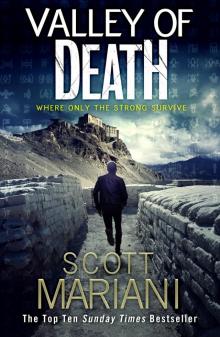 Valley of Death
Valley of Death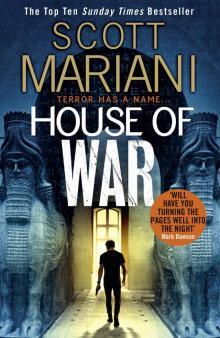 House of War
House of War The Pandemic Plot
The Pandemic Plot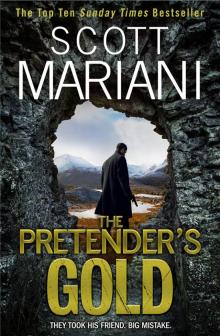 The Pretender's Gold
The Pretender's Gold The Demon Club
The Demon Club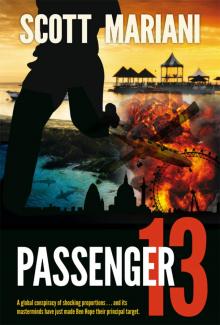 Passenger 13 (Ben Hope eBook originals)
Passenger 13 (Ben Hope eBook originals)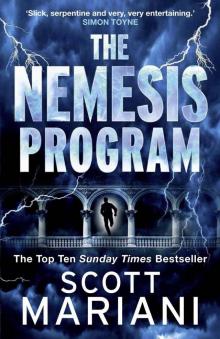 The Nemesis Program_Ben Hope
The Nemesis Program_Ben Hope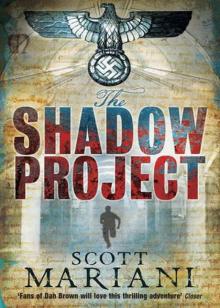 The Shadow Project
The Shadow Project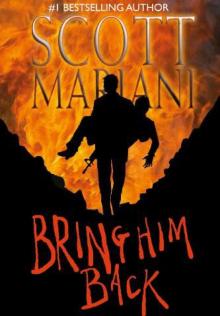 Bring Him Back
Bring Him Back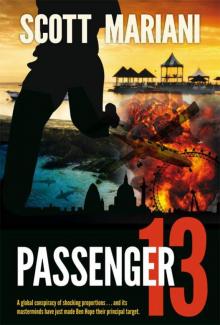 Passenger 13
Passenger 13 Sacred Sword (Ben Hope 7)
Sacred Sword (Ben Hope 7)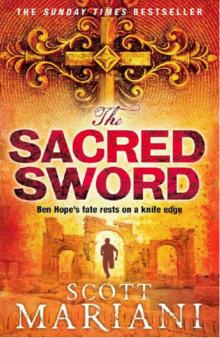 The Sacred Sword (Ben Hope 7)
The Sacred Sword (Ben Hope 7)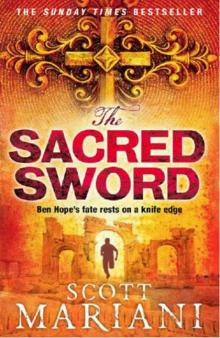 Sacred Sword
Sacred Sword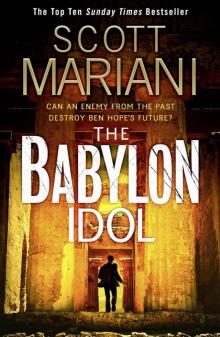 The Babylon Idol
The Babylon Idol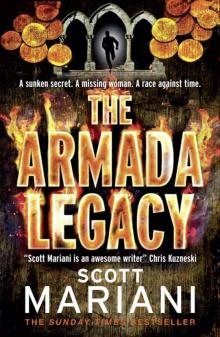 The Armada Legacy
The Armada Legacy The Heretic's Treasure
The Heretic's Treasure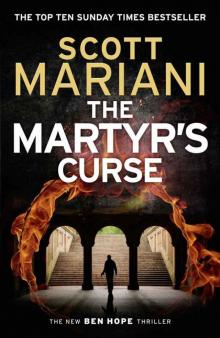 The Martyr’s Curse
The Martyr’s Curse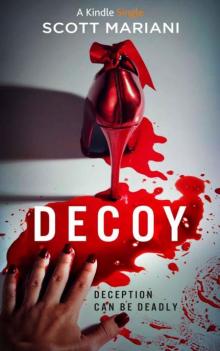 DECOY (Kindle Single)
DECOY (Kindle Single)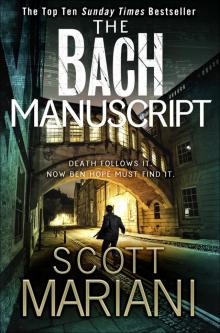 The Bach Manuscript
The Bach Manuscript The Alchemist's Secret
The Alchemist's Secret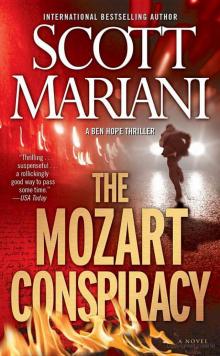 The Mozart Conspiracy: A Novel bh-2
The Mozart Conspiracy: A Novel bh-2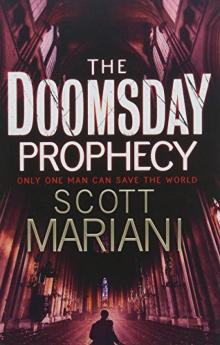 The Doomsday Prophecy
The Doomsday Prophecy The Ben Hope Collection: 6 BOOK SET
The Ben Hope Collection: 6 BOOK SET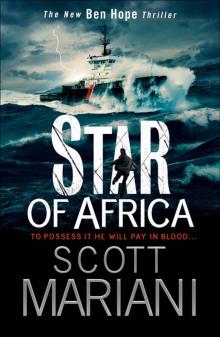 Star of Africa (Ben Hope, Book 13)
Star of Africa (Ben Hope, Book 13)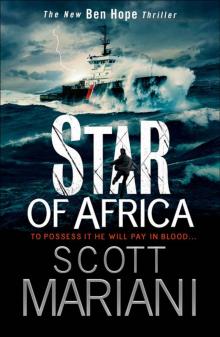 Star of Africa
Star of Africa The Forgotten Holocaust (Ben Hope, Book 10)
The Forgotten Holocaust (Ben Hope, Book 10)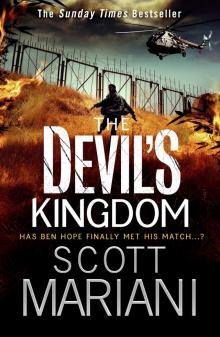 The Devil's Kingdom
The Devil's Kingdom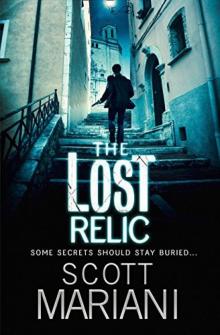 The Lost Relic
The Lost Relic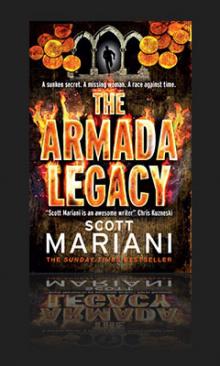 The Armada Legacy bh-8
The Armada Legacy bh-8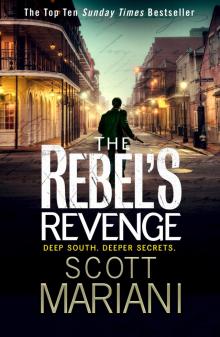 The Rebel's Revenge
The Rebel's Revenge The Forgotten Holocaust
The Forgotten Holocaust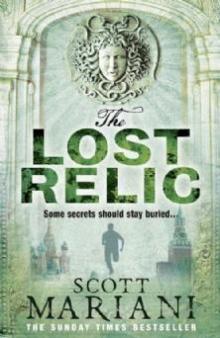 The Lost Relic bh-6
The Lost Relic bh-6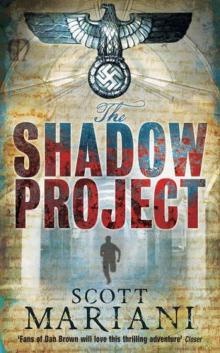 Ben Hope 05 - The Shadow Project
Ben Hope 05 - The Shadow Project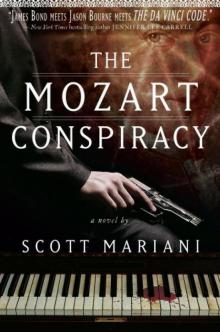 The Mozart Conspiracy
The Mozart Conspiracy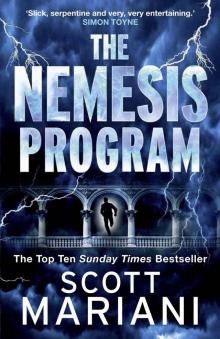 The Nemesis Program
The Nemesis Program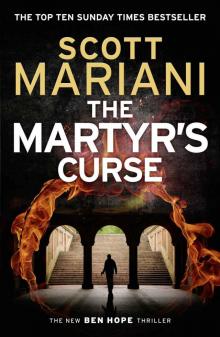 The Martyr’s Curse (Ben Hope, Book 11)
The Martyr’s Curse (Ben Hope, Book 11)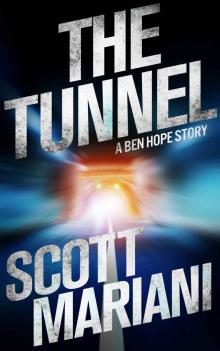 THE TUNNEL: A Ben Hope Story
THE TUNNEL: A Ben Hope Story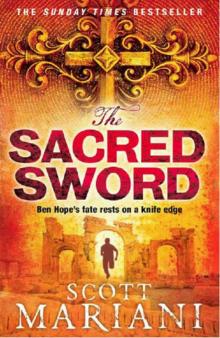 The Sacred Sword bh-7
The Sacred Sword bh-7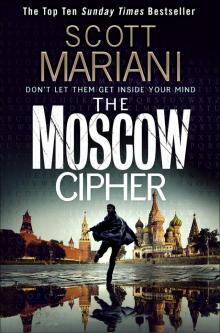 The Moscow Cipher
The Moscow Cipher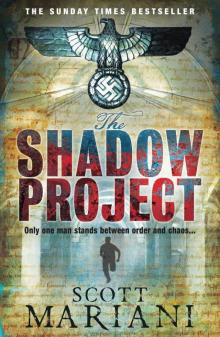 The Shadow Project bh-5
The Shadow Project bh-5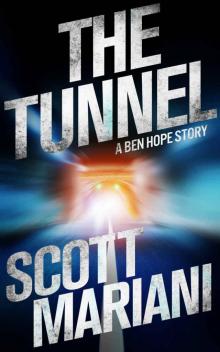 The Tunnel
The Tunnel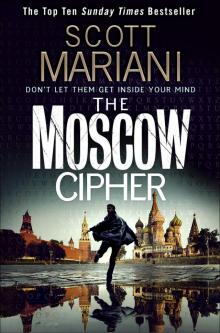 The Moscow Cipher (Ben Hope, Book 17)
The Moscow Cipher (Ben Hope, Book 17)